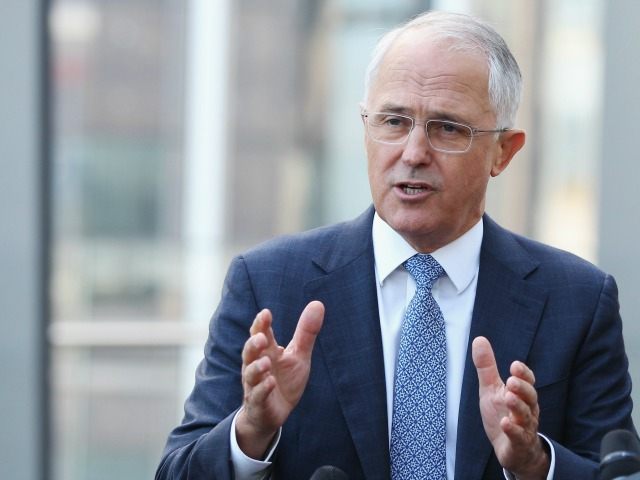Australian Prime Minister Malcolm Turnbull (pictured, above) Sunday called an election for both houses of parliament on July 2, as he seeks his own mandate with the public just eight months after deposing predecessor Tony Abbott in a party coup.
The widely expected announcement was the latest chapter in the turbulent world of Australian politics, where a revolving door of leaders saw multi-millionaire former banker Turnbull, 61, become the fourth prime minister in just over two years when he ousted Abbott in September.
“The governor-general has accepted my advice to dissolve both houses of parliament effective tomorrow morning, and call an election for both houses, a double dissolution, on 2 July,” Turnbull said in Canberra as he announced one of the nation’s longest-ever election campaigns.
“Australians will have a very clear choice — to keep the course, maintain the commitment to our national economic plan for growth and jobs, or go back to Labor, with its high-taxing, higher spending, debt and deficit agenda.
“I will be seeking a mandate from the Australian people as the prime minister of this country to carry out this (economic) plan.”
Labor opposition leader Bill Shorten, a 48-year-old ambitious former union chief, will take on the Liberal Party’s Turnbull in what is tipped to be a tightly contested vote.
The latest opinion polls, published by News Limited on Sunday, showed the coalition and Labor neck-and-neck at 50-50.
Turnbull ruled out a snap poll after he assumed the top job but stayed true to his threat last month to call early elections by using the trigger of a double dissolution — where all seats in both houses of parliament are contested — after deadlocked legislation failed to pass the upper house Senate.
The suave ex-barrister and journalist, a moderate on social issues, came into power with high personal ratings.
But support for him and the ruling Liberal-National coalition has slipped recently amid poorly handled debates about reforms and internal divisions fuelled by discontent from Abbott’s conservative supporters.
– Musical chairs –
The coalition has traditionally campaigned on its purported strength in economic management, with Turnbull and Treasurer Scott Morrison pledging to boost jobs and growth when they handed down their first budget Tuesday.
Australia is charting a rocky path away from mining dependence after an unprecedented resources investment boom that has helped the nation avoid a recession for 25 years.
Labor will focus on the party’s traditional policy areas of improving health and education.
“This election is much more than a choice between parties and personalities. This election is a choice about what sort of Australia that we want to live in,” Shorten told reporters in the southern island state of Tasmania.
The Greens — viewed as the third party in Australian politics — said they would campaign on inequality, climate change and asylum-seekers.
“We know this election campaign will be about the economy, but you cannot have a strong economy without a healthy environment,” party leader Richard Di Natale said at an anti-fossil fuel protest Sunday.
Since Labor’s Kevin Rudd become PM in 2007 after conservative leader John Howard’s decade in power, the two major parties have played musical chairs with the nation’s highest political office.
Rudd was toppled by Julia Gillard — the first female prime minister — in 2010, before being restored to power in 2013 amid bitter party infighting.
Just a few months later, he lost the elections to Abbott, who was then unseated by Turnbull last year.
Voting is mandatory in Australia for all adults, with turnout never falling below 90 percent since it became compulsory in 1924.



COMMENTS
Please let us know if you're having issues with commenting.